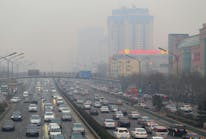A survey conducted by Huntsman Cancer Institute at the University of Utah (the U) researchers reveals that residents in frontier areas of the Mountain West face significant barriers to healthcare. The Community Health Assessment Survey (CHAS) focused solely on patients in rural and frontier areas. Rural counties have fewer than 100 people per square mile while frontier areas have seven people or less per square mile.
The team, led by Tracy Onega, PhD, senior director of population sciences at Huntsman Cancer Institute, and professor of population sciences at the U, found that most people living in rural and frontier counties know little to nothing about cancer clinical trials, considered to be the standard of cancer care by the American Society for Clinical Oncology. Also, they discovered that one in three people surveyed can’t afford medical care. A total of 1,700 people participated in the study. Prior attempts by other groups to survey rural and frontier residents yielded very limited participation.
Reducing distance as a healthcare disparity is a major focus at Huntsman Cancer Institute.
Onega and her team also found that:
• Two out of three people (68%) surveyed are not aware of programs to help pay for medical costs.
• Nearly three out of four (74%) rural residents are concerned about them or their loved ones getting cancer.
• Only 34% of these residents believe they have access to necessary medical specialists.
• More than one in three (37%) say they had difficulty accessing cancer screenings.
• Over half (65%) say that increasing the number of visiting specialists would be a key way to improve access to care.
Huntsman Cancer Institute at the University of Utah release on Newswise





